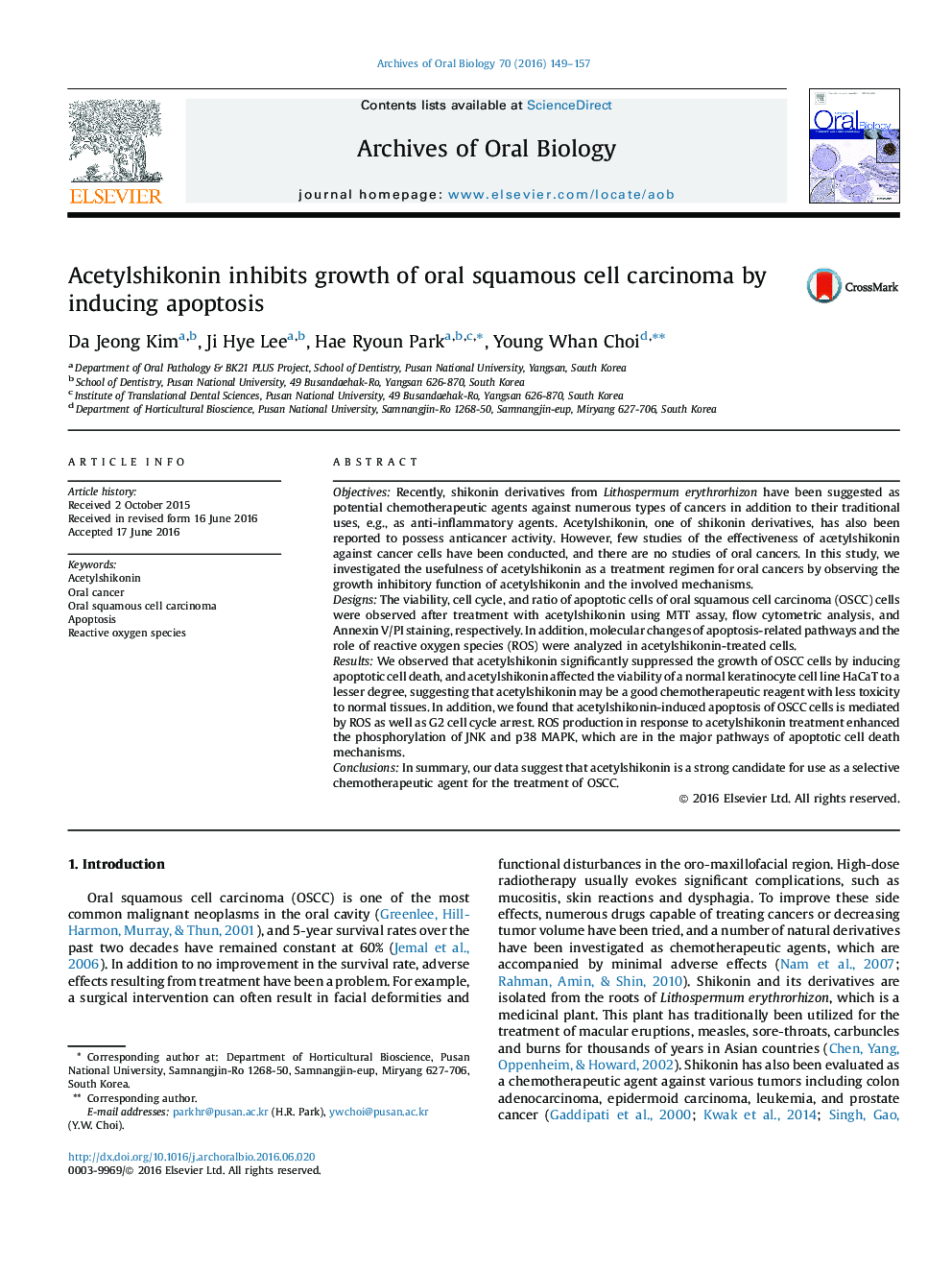| کد مقاله | کد نشریه | سال انتشار | مقاله انگلیسی | نسخه تمام متن |
|---|---|---|---|---|
| 3120603 | 1583283 | 2016 | 9 صفحه PDF | دانلود رایگان |
• Acetylshikonin induces apoptosis in OSCC cells.
• Acetylshikonin generates reactive oxygen species in OSCC cells.
• Acetylshikonin activates JNK and p38 in OSCC cells.
ObjectivesRecently, shikonin derivatives from Lithospermum erythrorhizon have been suggested as potential chemotherapeutic agents against numerous types of cancers in addition to their traditional uses, e.g., as anti-inflammatory agents. Acetylshikonin, one of shikonin derivatives, has also been reported to possess anticancer activity. However, few studies of the effectiveness of acetylshikonin against cancer cells have been conducted, and there are no studies of oral cancers. In this study, we investigated the usefulness of acetylshikonin as a treatment regimen for oral cancers by observing the growth inhibitory function of acetylshikonin and the involved mechanisms.DesignsThe viability, cell cycle, and ratio of apoptotic cells of oral squamous cell carcinoma (OSCC) cells were observed after treatment with acetylshikonin using MTT assay, flow cytometric analysis, and Annexin V/PI staining, respectively. In addition, molecular changes of apoptosis-related pathways and the role of reactive oxygen species (ROS) were analyzed in acetylshikonin-treated cells.ResultsWe observed that acetylshikonin significantly suppressed the growth of OSCC cells by inducing apoptotic cell death, and acetylshikonin affected the viability of a normal keratinocyte cell line HaCaT to a lesser degree, suggesting that acetylshikonin may be a good chemotherapeutic reagent with less toxicity to normal tissues. In addition, we found that acetylshikonin-induced apoptosis of OSCC cells is mediated by ROS as well as G2 cell cycle arrest. ROS production in response to acetylshikonin treatment enhanced the phosphorylation of JNK and p38 MAPK, which are in the major pathways of apoptotic cell death mechanisms.ConclusionsIn summary, our data suggest that acetylshikonin is a strong candidate for use as a selective chemotherapeutic agent for the treatment of OSCC.
Journal: Archives of Oral Biology - Volume 70, October 2016, Pages 149–157
